More than ten years after the production of Nikolaus Lehnhof in 2007, Tannhäuser returns to Amsterdam. Christof Loy stages for the Dutch National Opera a new production of the opera that would keep Richard Wagner occupied until the end of his life. "I still owe the world another Tannhäuser," he would have said just before his death. Tannhäuser is about the classic struggle between heart and mind, lust and love and what it means to be a man (or human being for that matter). He lived there from 1839 to 1842, sought the support of Meyerbeer, but Richard Wagner saw his attempts to work his way up to an established name in Paris (the cultural capital of Europe, of the world) fail. In 1861, to his great delight, he seemed to be given another chance when he was asked to stage a French production of his opera Tannhäuser in Paris. Extensive preparations followed; the music was revised, the sets were designed by three artist who were amongst the most famous of their time, and more than 160 rehearsals took place until the premiere. It wasn't supposed to be. Tannhäuser in Paris was a fiasco. Main cause: the Jockey Club, a group of men of the aristocracy who had to miss their ballet at the beginning of the second act because Richard Wagner, that stubborn Teutone, allowed artistic reasons to take precedence over the conventions of the Grand Opera. Wagner had placed the ballet at the beginning of the opera, at the end of the overture, because from a narrative point of view it was the most logical spot. The members of the Jockey Club, who were usually still having dinner during the first act, and more into the bosoms and bare legs of the ballerinas than into opera, were all but pleased. They disturbed the performances to such an extent, handed out whistles and rattles to the audience, that Wagner felt compelled to withdraw the opera after three performances. Despite the fact that he found supporters and kindred spirits in French artists, such as Charles Baudelaire, Wagner would not live to see the day that he would be a household name in Paris; it did not leave him without a grudge. "Without any pose, I assure you that I do not believe in any revolution more than the one that starts with the burning down of Paris," he wrote, and in 1870, at the outbreak of the Franco-Prussian war, Cosima writes in her diary: "Paris is being bombed, who doesn't want to listen, has to feel [...] Rumours about a truce. To our displeasure, R. wishes a bombardment." In his new production of Tannhäuser for the Dutch National Opera, director Christof Loy brings Paris and Wagner together again. He has the Jockey Club appear as well as knights of the Wartburg as participants of the bacchanal in the mountain of Venus. The world of Venus and the Wartburg come together in what most resembles a painting by Degas (Foyer de la Danse). One world, one stage image, in which lust and prudery come together, separated only by the male perspective on the woman - the way in which the man sees a woman (as a saint or as a whore). The story of Tannhäuser is the story of a man who tries to find a balance between these two opposites (are they really opposites?); a search for the answer to the question how to be a man, how to be a human being. In his career, Wagner would repeatedly return to the question of lust & love, salvation and the role of women in it. In a superlative way. His talent to expose the drama hidden in the human condition with compelling musical prose can be considered awe inspiring. Tannhäuser (consistently addressed as Heinrich, named after the semi-mythical minstrel Heinrich von Ofterdingen) begins the opera that bears his name behind a piano, composing. As the overture progresses, the room changes from a quiet artist's place into a bacchanal in which members of the Jockey Club are chasing ballerinas. The staging of the overture is, as is often the case in this opera, the part that appeals most to the imagination. There is nudity and sex, with or without consent. We are in the mountain of Venus, that part of the masculine mind where the woman serves only as a prey for red hot testosterone. After a long stay there Tannhäuser has enough. He is fed up with constant copulation, he wants to return to the mortal world, to nature, to the world where he will be able to be creative again. The instant satisfaction in Venus' garden of lust deprives him of the inner struggle necessary to give birth to a dancing star (after Nietzsche who, at the moment that Wagner started composing Tannhäuser, wasn't even born).
Wagner would later present an unsurpassed and all-encompassing argument for it with Tristan und Isolde, but the premise that art is unrealized sex is already hinted at in Tannhäuser. Tannhäuser, the minstrel of the Wartburg, is left behind in the coital world of Venus with an unsatisfactory feeling and asks the goddess of lust to let him go. The goddess feels rejected and is surprised that Tannhäuser wants to return to the mortal world; she is shocked by his ingratitude. What Tannhäuser really wants becomes not entirely clear. Once back in the world where pure love is considered the highest ideal, the Wartburg, the world in which Elisabeth is waiting for him, he insults and shocks his entourage by chanting the glory of lust. The source does not dry up by drinking from it, he tells his friend Wolfram during the Sängerkrieg, the singing contest in the second act. Wolfram von Eschenbach is, in this production perhaps even more so than usual, with Tannhäuser the most important male character of the opera. His struggle with his ideas about pure love, his inability to indulge in lust, puts him in sharp contrast with the rest of the members of the Jockey Club whose madonna-whore complex is as big as the hypocrisy they are guilty of. The hypocrisy, that lurks in the background when they condemning Tannhäuser, is prominently placed in the foreground by Loy. Here hypocrisy is not just suggested for those who want to see it but finds an unambiguous representation on stage. The masculine inability to see love and lust as an unity is reason for Loy to supply both the world of Venus and the world of the Wartburg with the same stage image. The result is a rather static space that is not abstract enough to be interpreted too broadly. As a consequence the emphasis lies, almost automatically, on the Personenregie. This works very well in the mass scenes (with a magnificent chorus!). The more intimate scenes would probably have benefited from a higher dynamic in the scenery; for a more compelling effect, the suggestive music could have been paired with a more inventive graphic representation. Tannhäuser's struggle, his quest, his audacity plus the fact that he too - as in a Sartrean world (l'enfer c'est les autres) - gives in to peer pressure (let's go to Rome) make him like a real man. It makes him one of the more sympathetic characters who usually populate a Wagner opera. In Daniel Kirch's interpretation, Tannhäuser is more of a rascal than a hero, a man for whom the creation of turmoil almost is like a goal in itself. Kirch had to look for the pedals at the start but once going his performance fitted in perfectly with Loy's concept. Wolfram was an exceptionally strong role by Björn Burger, a powerful interpretation of a man full of doubt- it made the principled Wolfram a more congenial man, less of a trotter, than he sometimes can be. Stephen Milling, who combines a tall posture with an equally large voice, is a regular inhabitant of the Wagner-sphere. The Danish bass (a.o. Hunding in the Copenhagen Ring, Hagen in the Bayreuther Castorf Ring) sung and acted Landgraf Hermann with known authority. It is a role he will also sing later in the year in Munich and Bayreuth (in the new Tannhäuser production of Tobias Kratzer, theatre maker who directed an excellent Contes d'Hoffmann last year for DNO). As Elisabeth's uncle, he is organising a singing contest, a singing contest with a woman as the main prize ( Wagner would take it as starting point for his Meistersinger) in which the old partriarchal convention, the woman as a commodity, as a kind of Stepford Wife, is ubiquitous. Loy deserves credit for breaking open Tannhäuser's patriarchal world, putting it in a perspective that synchronizes more with topical times, without turning the result in something artificial. It is Wagner's instinct, his genius, that saves Tannhäuser (the opera) from a grotesque gap between love and lust. He turns Venus, the goddess of lust, into a woman who also wants love while Elisabeth, a model of pure spiritual love, is longing for sensual pleasures as well. With music, he juxtaposes both body and mind, while at the same time lets them intertwine. Loy had both women, following Wagner's instinct and not his libretto, appear at the beginning of the third act. Like two women embodying together that one woman that the man does not see (or does not want to see). In Amsterdam, Ekaterina Gubanova made her role debut as Venus. She will also sing the role in Bayreuth this summer. She combined a big voice, by times a bit sharp, which was not entirely out-of-character, with a convincing stage presentation. Her Venus was a multi-layered woman who did not get stuck in lust and envy and carried the weight of her role on strong but sensitive human shoulders. That drama and beauty often go hand in hand was proven by Elisabeth's performance by the Russian soprano Svetlana Aksenova. In an ethereal garden of sound, Aksenova picked flowers of desire and clamped a rose of passion between her teeth. She brought to life an Elisabeth who carried with her both the exaltation and the drama of love, in which her love for Tannhäuser, which she loved more than the other way around, condemned her to a certain death; the only one in the opera as we shall see. Her performance gave her character a beauty that by Elisabeth's inevitable faith took on a monumental dimension. From her Teure Halle on, at the start of the second act, she expressed an irresistible desire for something pure in this world, something that has not yet been affected and contaminated, like snow that is still free of footsteps ... Like snow … There are various ways for a director to trigger a singer/actor. For Svetlana Aksenova, the word "snow", brought up by Christof Loy, worked wonders. It opened a door in Aksenova's Russian soul and plunged her into an extraordinarily impassioned interpretation of Elisabeth. Like Lucas van Lierop, who took care of the role of Heinrich der Schreiber, Julietta Aleksanyan comes from the Dutch National Opera Studio, the training institute of the Dutch National Opera. As the young shepherdess she reached to great heights in the first act - a performance that promised much for the future In Tannhäuser, Wagner is still a few operas away from his with leitmotives woven tapestries of sound; the orchestral accompaniment is of a rather austere nature, is characterised by an economic use of ideas and deliberate chosen moments of exuberance. It is music that Wagner would revise several times after the premiere in Dresden and to which he would add beneficent, mystical sounds. Sounds that would bear witness to his newly acquired musical findings in a Tristanesque world, anticipating Sacre-like violence. Sounds that are like a second home for conductor Marc Albrecht. As always, Albrecht let the Netherlands Philharmonic Orchestra shine in romantic repertoire. In 2020 Albrecht will leave the Dutch National Opera - unfortunately without having conducted a complete Ring cycle - and with his orchestra he laid the foundation for what was a strong performance indeed. For the redemption of the man, the woman has to die, it's a constancy with Wagner. In this production Elisabeth does indeed die by taking on Tannhäuser's sins but in addition to Tannhäuser's salvation she also provides salvation for everyone. Tannhäuser stays alive and the opera ends as it started, with an orgy. Tannhäuser slowly begins to understand the depth of Elisabeth's sacrifice and removes himself from Venus. The cheerfulness on stage comes with a bitter taste, for one may wonder what one has really learned from it all. When asked how to find the balance, in life, between the sensual and the spiritual, Loy explicitly leaves the answer open. There is usually no shortage of quality in the Wagner performances of the Dutch National Opera and also this Tannhäuser can be considered (after an excellent Tristan last year) first rate. Wagner-lovers know what to do by now, as do the rest of the opera-loving public: they will find their way to the Muziektheater in Amsterdam. Dutch National Opera 6 April 2019 (premiere): Dates 6 April until 1 May Conductor: Marc Albrecht Netherlands Philharmonisch Orchestra Stage direction: Christof Loy Decor: Johannes Leiacker Costumes: Ursula Renzenbrink Tannhäuser: Daniel Kirch Elisabeth: Svetlana Aksenova Venus: Ekaterina Gubanova Wolfram von Eschenbach: Björn Bürger Hermann, Landgraf von Thüringen: Stephen Milling Walther von der Vogelweide: Attilio Glaser Heinrich der Schreiber: Lucas van Lierop Ein junger Hirt: Julietta Aleksanyan - Wouter de Moor
0 Comments
|
TIMELINE
July 2024
|

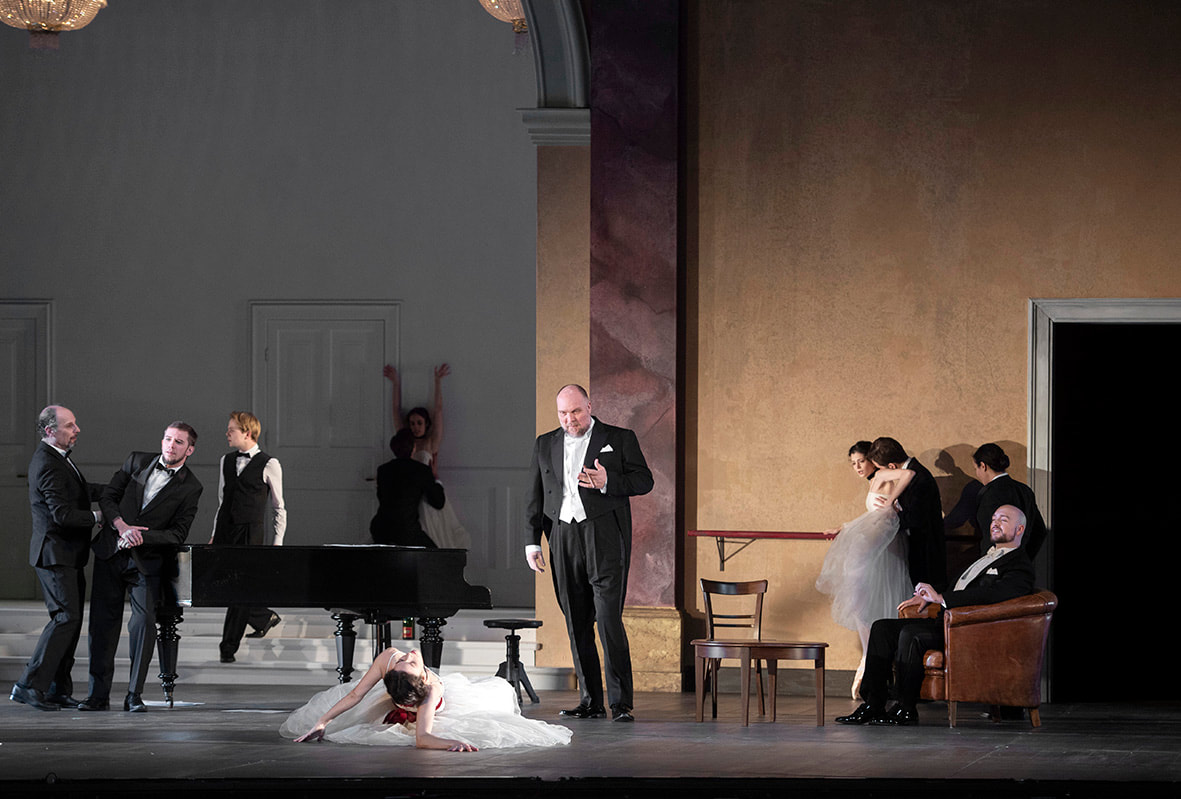
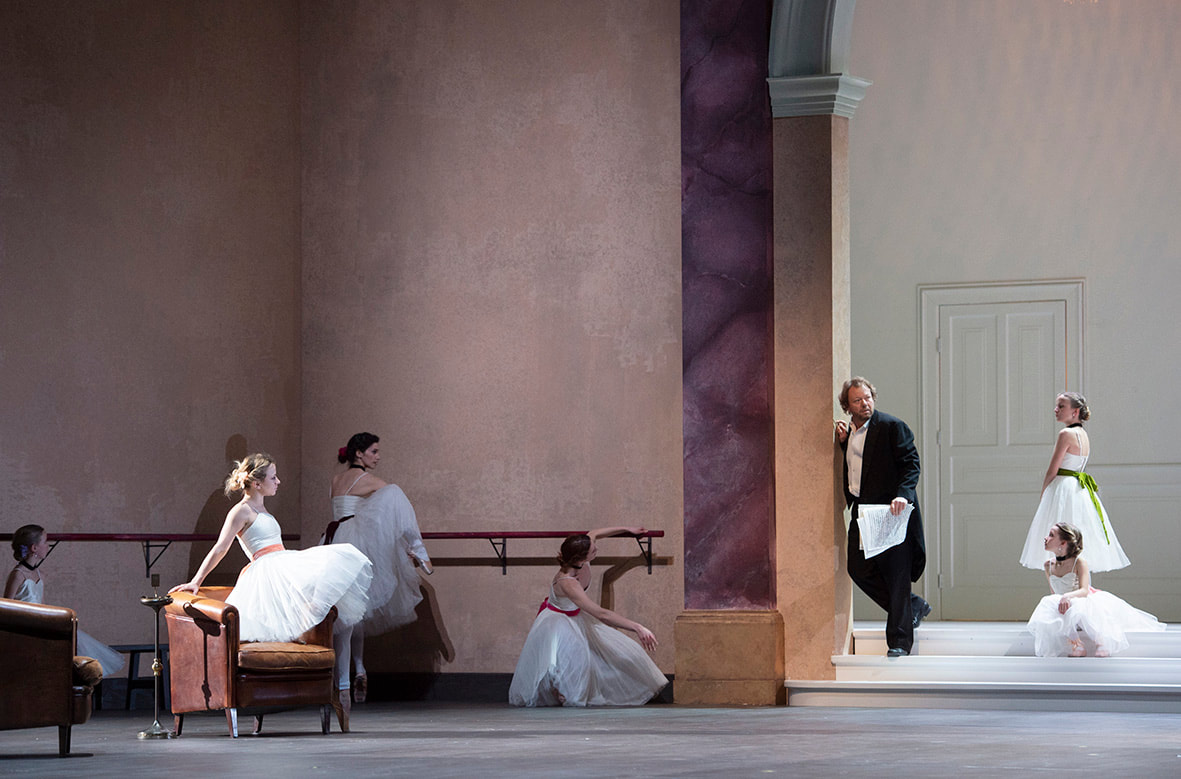
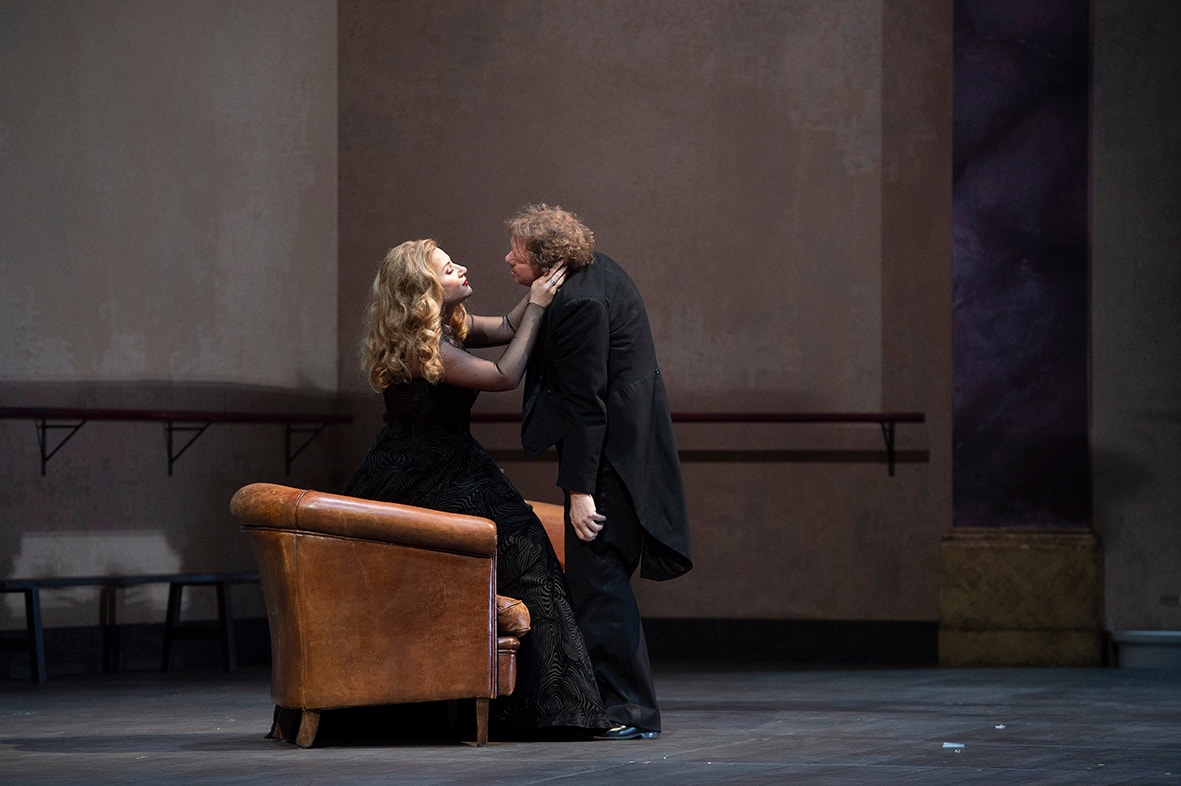
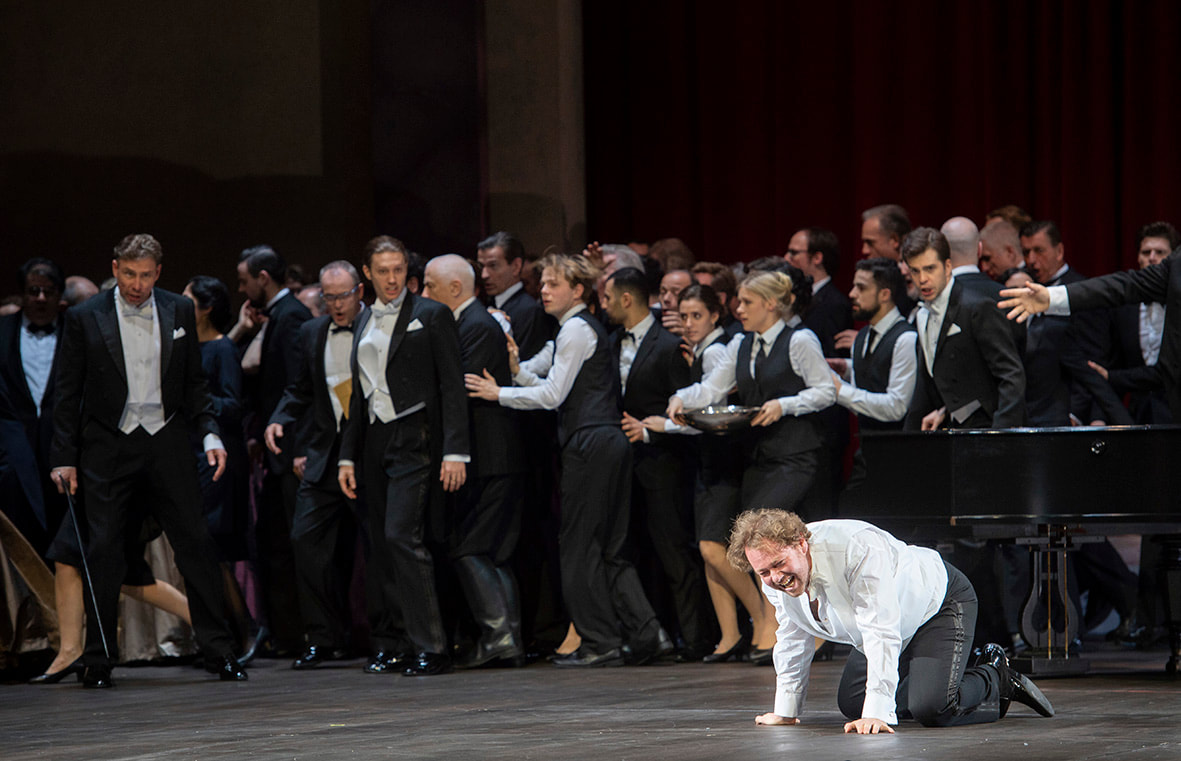
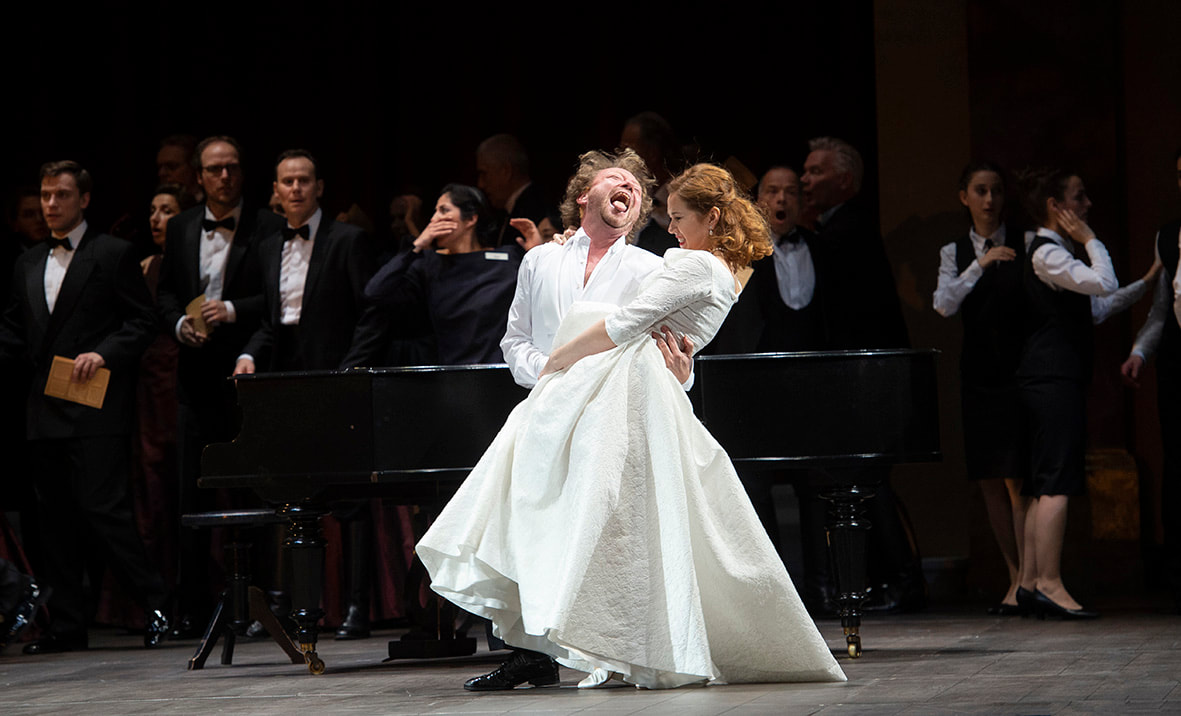
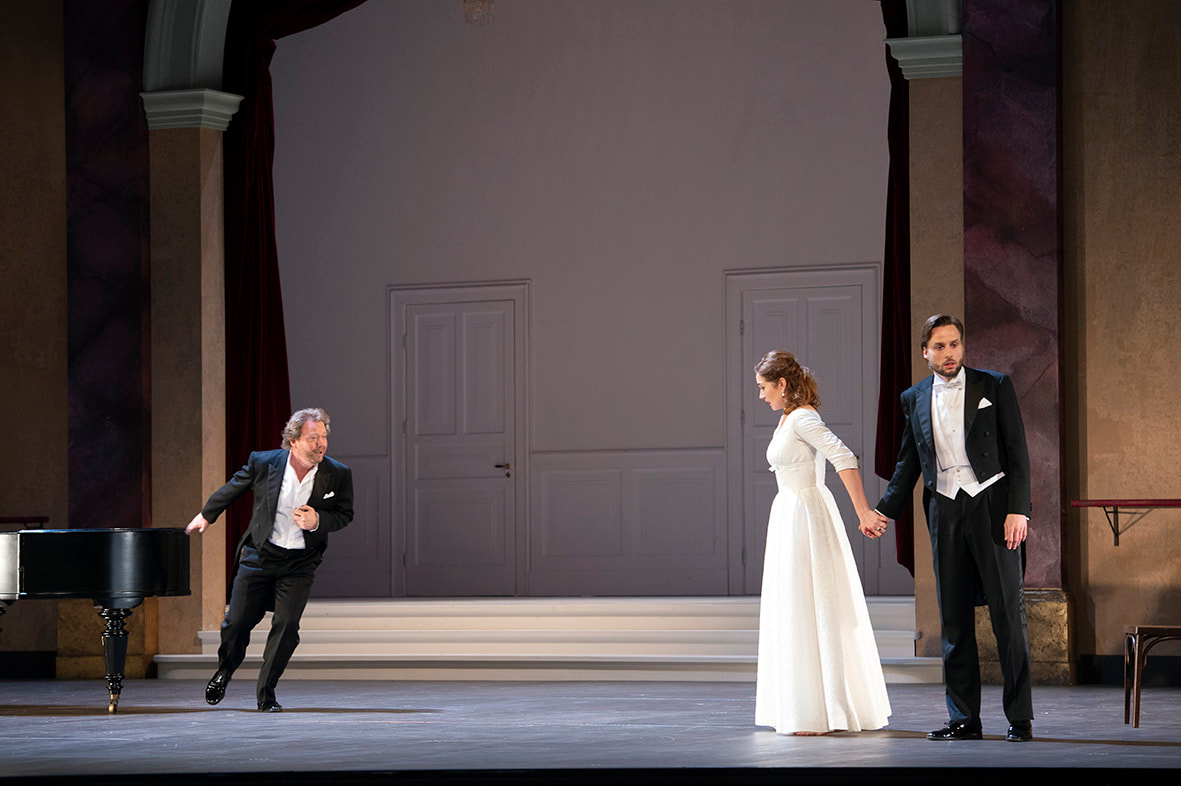
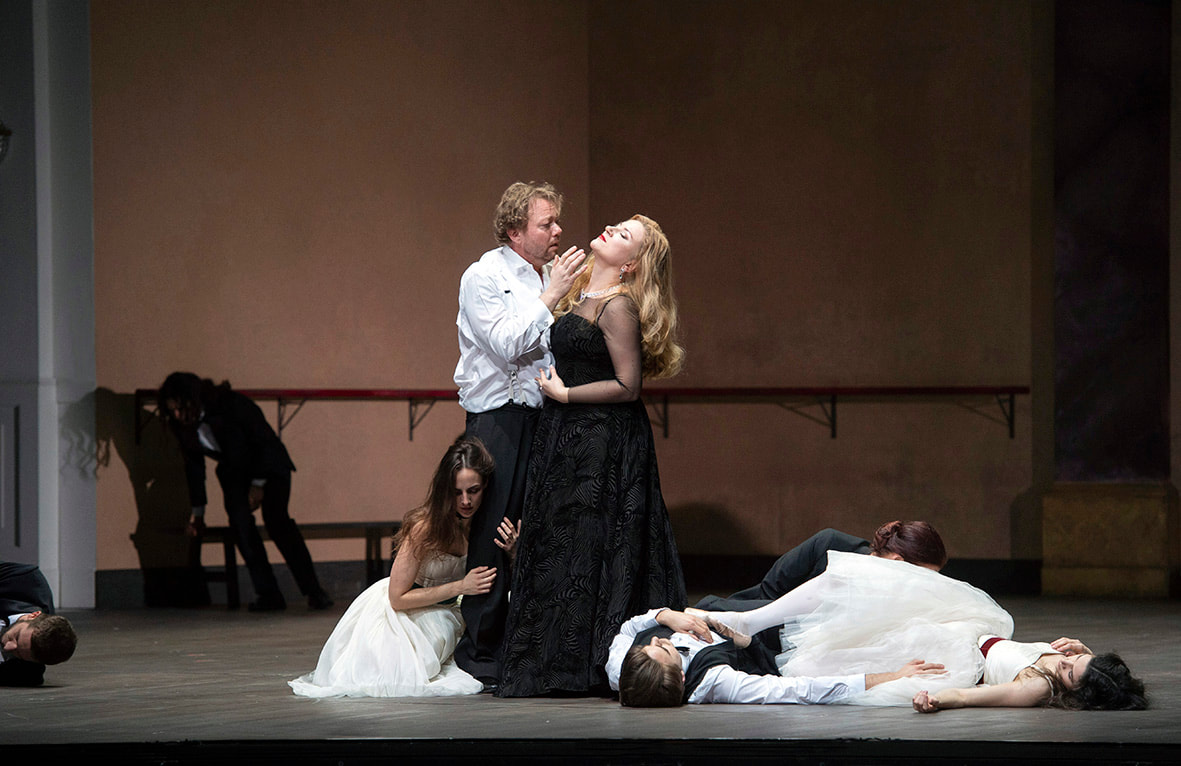
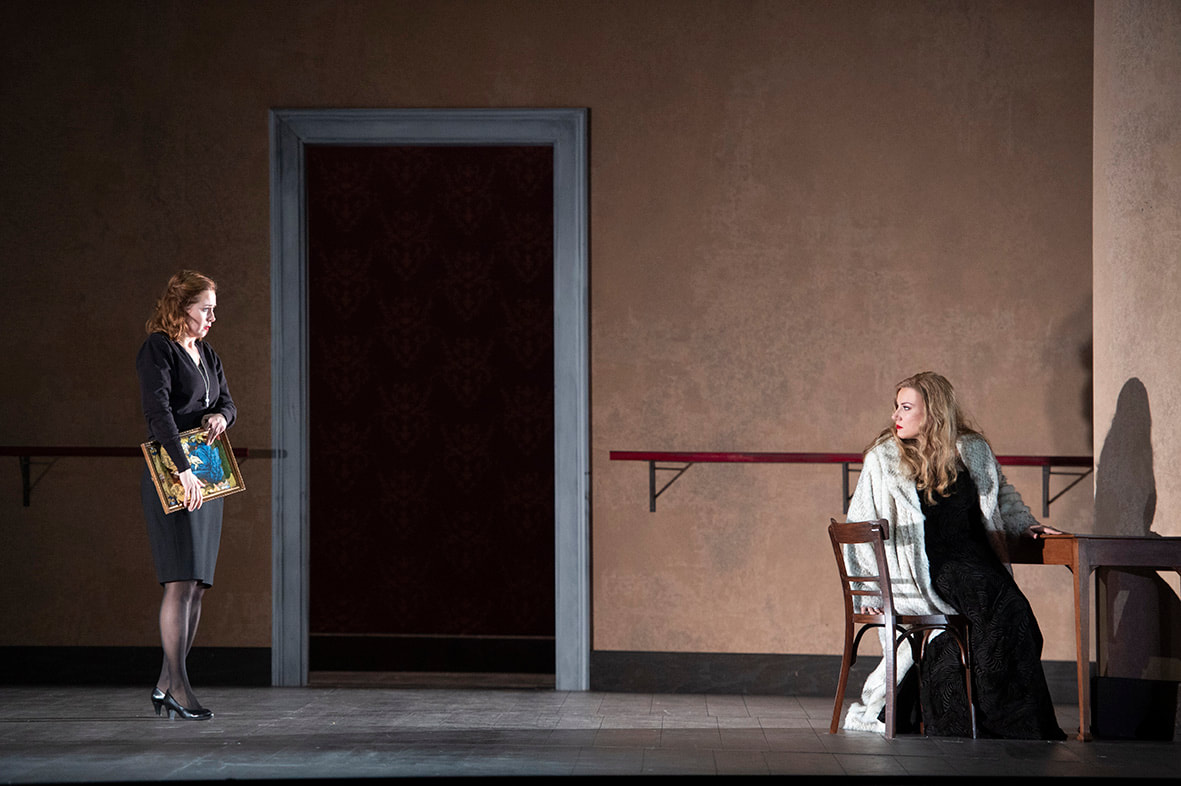
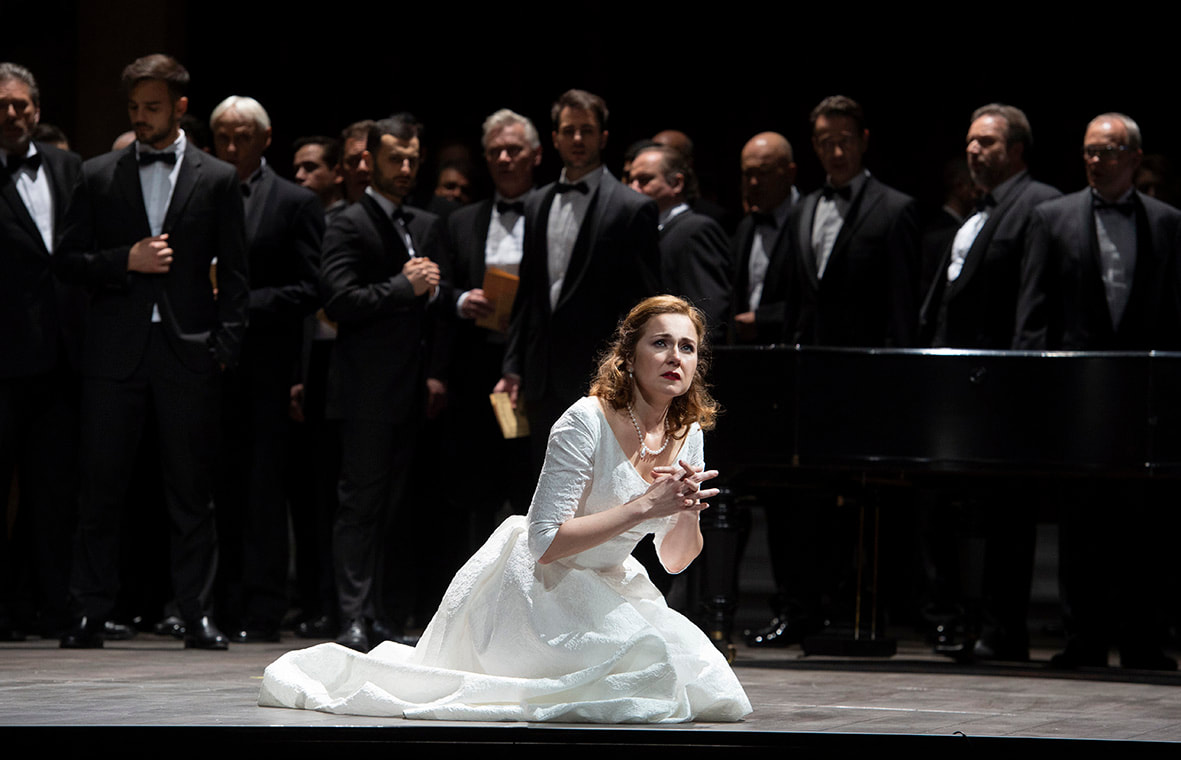
 RSS Feed
RSS Feed